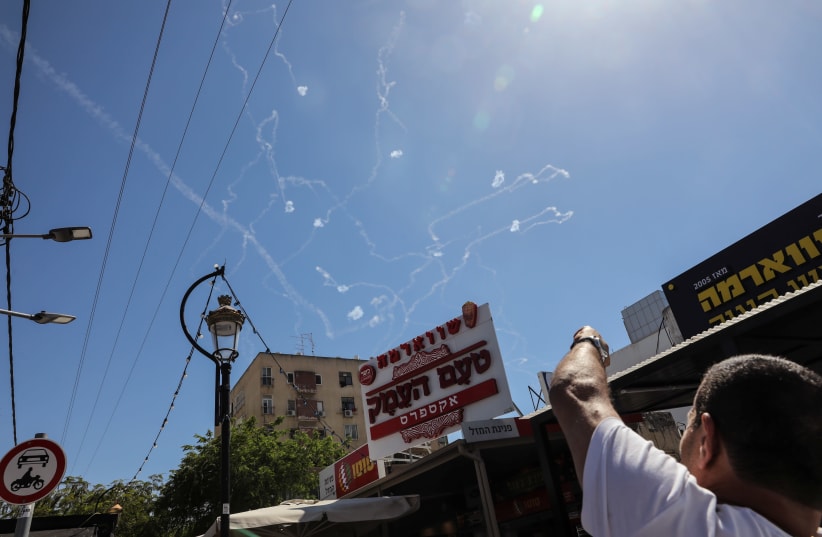A compensation plan for indirect damages caused to businesses resulting from the recent Operation Guardian of the Walls military campaign with Gaza was met with widespread opposition from Knesset members and business organizations.
The plan, proposed by the Finance Ministry and Tax Authority, outlined several paths for compensation that could be used by companies located within 40 kilometers of the border with Gaza. However, it did not have any solutions for businesses located outside of that radius.
Compensation will be made by the government for all direct damage to buildings and property as a result of the fighting. However, the matter of indirect damages to businesses, like lost profits and worker salaries, is a touchier issue.
The model that was proposed earlier this week allowed businesses near Gaza to choose whether they want to be paid through a calculation based on lost business turnover or lost wages, based on the compensation outline used after the 2014 Protective Edge military campaign.
Tax Authority director Eran Yaakov defended the plan as proposed. “We must remember that since 2006 this has been the plan, and we have not deviated from it. In Operation Protective Edge in 2014, the fighting lasted much longer. In this round, more than 80% of the sirens were within 40 kilometers, and more than 87% of those came during work hours. There is a price that has to be paid, and if you include outside 40 kilometers, we are talking about billions of more shekels. For just indirect damage within the 40 kilometers, we are talking about NIS 2 billion in payments.”
However, others argued that the logic from previous campaigns could no longer be applied.
“This operation has a different scope from previous operations, both in terms of rockets being shot to farther areas, and also because in mixed cities many people did not go to work for days, and there are places where they still have not returned, said MK Moshe Gafni, the committee’s chairman.
“We are talking about indirect damages, but what about Ramle, Lod and Acre?” asked MK Yinon Azoulay. “These places need to be rehabilitated. People are not working; people were afraid to leave home; some are still afraid to leave. We also need to pay attention to them.”
“The Finance Ministry and the Tax Authority are escaping responsibility toward the citizens of the State of Israel, as if these people were on the French Riviera or at the beach,” said Roi Cohen, of the Chamber of Independent and Business Organizations.
“We are creating a dangerous precedent where there is no connection between the command instructions and compensation payments.
“What does the state say to a business owner in Yavne who was told by the Home Front Command that his building is dangerous [so workers can’t come in], but he has to pay eight workers?! It is spitting in his face. Once again, the state is running away from responsibility.”
“When there are missiles and sirens, people do not go to restaurants anywhere in the country,” added Shai Berman of the Restaurant Association. “Using the model from Operation Protective Edge, when the center of the country was out of range, it is far from reality. The corona grants that have been given are irrelevant. Jaffa is collapsing; Haifa is collapsing, Acre is collapsing, and all these places will need a very long time for places of entertainment and small businesses to recover.”
Once a final plan is approved, eligible parties can file a claim for indirect damage to the Compensation Fund at the Tax Authority.
